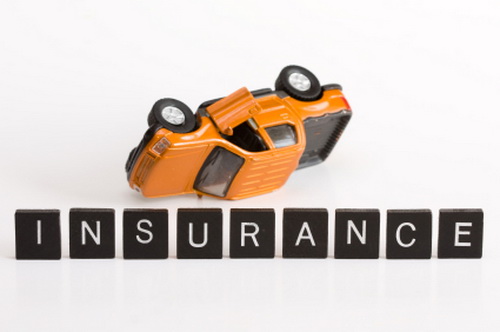There are two options you have after experiencing a particularly nasty accident: whether you get coverage for repair, or you just receive total loss coverage. Therefore, every owner of vehicle insurance must know whether their cars are counted as totaled or still able to be repaired at body shop. If you choose to repair the car while it is actually totaled, the calculation will not be favorable for your own financial stance (you probably will get more benefits if you just go with total loss and buy a new, cheap car). However, if the car is not really totaled, getting it fixed is definitely a better option.
How to Determine Totaled Car
Before deciding which vehicle insurance for totaled car you need to pick, it is best to see the formal definition of totaled car. In the US, each state has specific condition that rules a car as totaled after an accident. However, many states usually go with standard percentage of 75% of loss from the car’s actual value, except for some states such as California that put 80% instead of 75% of loss as the standard rule to determine if a car is totaled. The cash value of the car is determined of factors such as brand, years of production, and years of using.
However, what if you still want your car despite already counted as totaled based on the state’s requirement? You can actually do this by buying it back using the title of ‘salvage.’ Many vehicle insurance companies actually cover for the cash value for this car minus your deductible, although of course you need to pay fee and salvage value of the car (which can reach $500 to $900 depend on the entire policy details and your car, so make sure you are prepared).
Make sure you know well about your car’s details, so you can make the best choice in choosing the right vehicle insurance coverage. Do not take total loss if your car is actually able to be repaired, and do not force yourself to fix it if your car is totaled.

Vehicle Insurance Basic Tip Determining the Totaled Car
Scenario Samples for References
How to determine if your vehicle insurance for totaled car is the right option? Here are some scenarios you can make as future references to determine whether your car is considered totaled or not:
- You drive an Escalade car that is only 5-month old during rainy weather, and you slightly lost control on slippery road and hit the back of a car. While there is quite a severe damage and the airbag is also deployed (airbag repair is also counted into totaled percentage), the actual cash value of your car makes it able to be repaired and not counted as totaled.
- You drive and experience the same scenario, but this time, you drive a 6-month old Accent. When the similar occurrence happens, the cost of damage and airbag deployment exceeds the half of your car’s actual cash value. In this case, it is best if you just accept total loss coverage.
- You drive a pickup truck that is 10-year old, and you swerve out of the road and hit a tree, causing your airbag to also deploy. Since the total damage of your car and airbag deployment exceeds the cash value of your car way too high, it is a clear case of totaled car, and you will have better chance of accepting total loss in your vehicle insurance policy.
Remember that airbag repair is quite expensive and often can reach the numbers close to $1,000, so make sure to involve this when you calculate the damage cost of your car after an accident happens.
Other Factors that Influence Totaled Car Status
Besides the actual damage of the car and the airbag deployment, there are other factors that can influence the totaled car status of your car. For example, despite driving a brand new car with high cash value, your agent can declare it as totaled. This is because many modern cars from the last 5 years or so have been so computerized, or had specific sophisticated technology that makes them harder to repair. Other factors include your odometer reading and the thinner material of your car, which is purposely made by the manufacturer as safety measure (the more crumpled the car in an accident, the safer the passengers).
Now you already know what to expect; make sure to determine more accurately whether you can still use vehicle insurance to repair the car or just accept total loss coverage, since it will determine the next financial decision you make.
